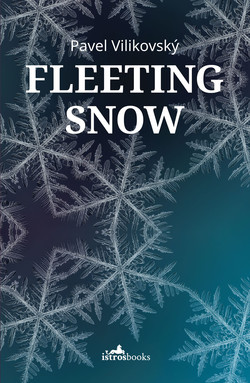Читать книгу Fleeting Snow - Pavel Villikovsky - Страница 24
На сайте Литреса книга снята с продажи.
Оглавление1.h
When I was a student I took a summer job delivering the post; Mother had pulled some strings to get me to fill in over the holiday season. I liked the work. First thing in the morning at the central post office the mail would be sorted by postal district, and each of us would stuff our pile of letters, parcels and cheques into a holdall (the wheelie shopping bags of today were still a distant dream) and set out on our rounds. It was basically up to us how we organised our time and route.
I used to pre-sort my mail by street and house number so that I wouldn’t need to spend too much time rooting about in the huge holdall. As I stashed the letters in the bag I would read the names on the envelopes and tried to imagine what their owners looked like; it was a kind of private game, an additional bonus of the job. I wasn’t attracted by obvious, down-to-earth names such as Kováč or Medveďová, Mrs Bear, which left little room for the imagination. But it was fascinating to guess what someone called Libaj, Bikšudová, Svačko or Kabuliaková, names that had no obvious meaning, might look like. In those days, many old tenements still lacked letterboxes, and recorded letters, summonses and cheques had to be signed for. And so, in the course of six weeks, I got to meet most of the addressees. I forget what Bikšudová looked like but remember that I had imagined Svačko as a smiling, talkative old man with a twinkle in his eye; I even expected him to let me keep some small change from his pension with a generous wave of the hand. I pictured Libaj as a sturdy man with an upturned Hungarian moustache and a fob watch dangling from his waistcoat, and Kabuliaková as a frowning woman in an apron, with beads of sweat on her brow and smoothly combed grey hair parted in the middle.
On occasion my predictions turned out to be fairly accurate, though not absolutely spot on, but the reason I remember these three people is that they proved me totally wrong: Libaj was a young man with a crew-cut and dressed in vest and shorts; Kabuliaková had bright red fingernails and her perfume filled the entire hallway; and Svačko was a typical boring bureaucrat who reached straight for the pen without giving me a glance.
Not only are our names not unique but, unlike native American names, they don’t tell us anything about their bearers. They are just lottery tickets that a parrot has pulled out of the drum.
The owner of the fur coat, Mr König, wasn’t happy with the parrot’s choice – one minute he was a German king, König, and the next a Slovak one, Kráľ. If I saw these names on an envelope, each one would conjure up a completely different image. But back then I couldn’t imagine that a man might have no qualms about changing his name, yet be unable to recognise it later on.
My name wasn’t picked by a parrot either, I chose it myself. My name is Čimborazka. Except I haven’t told anyone.
